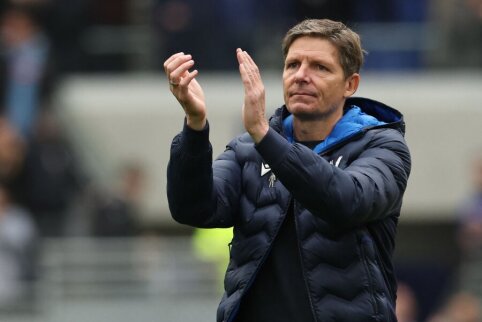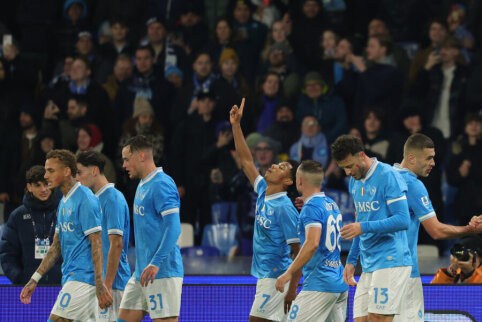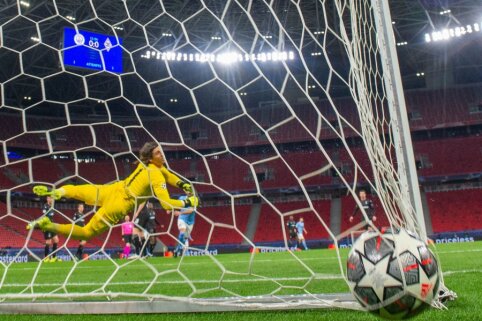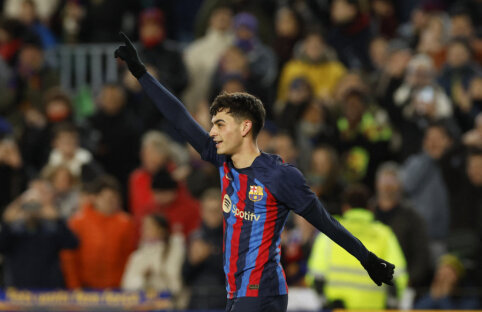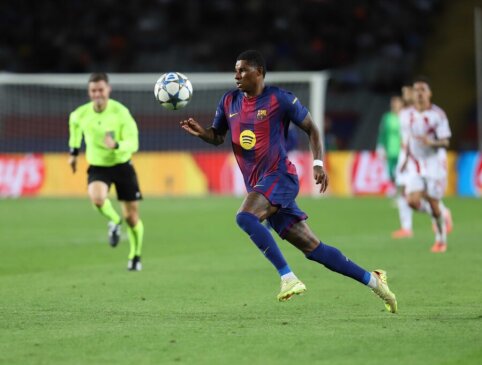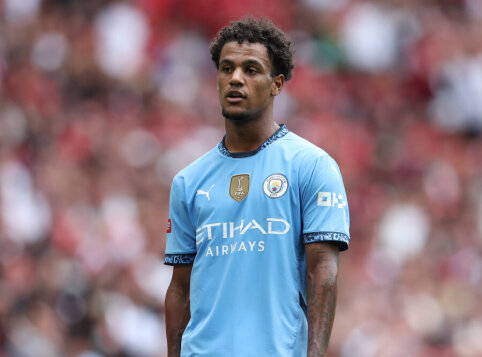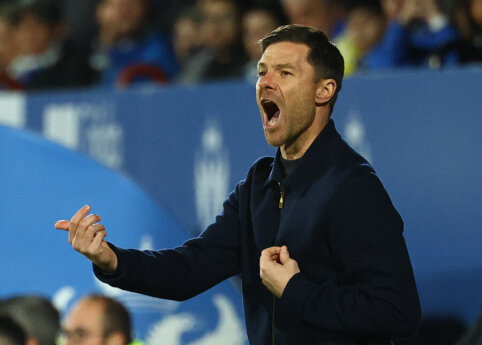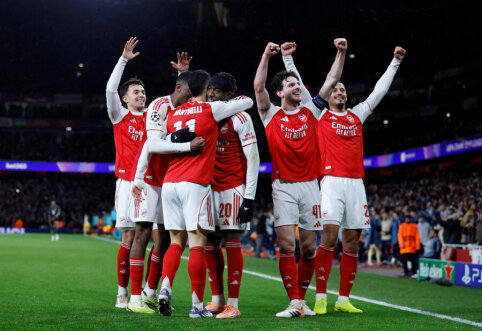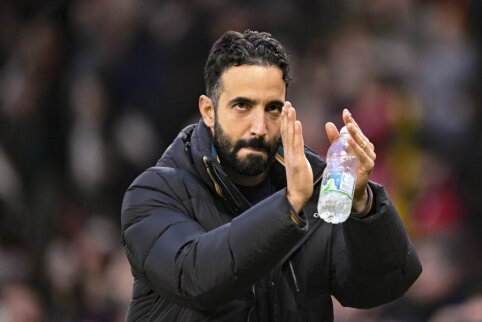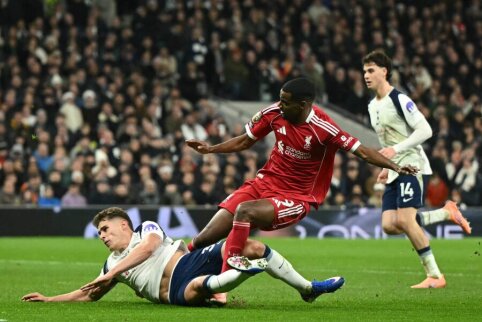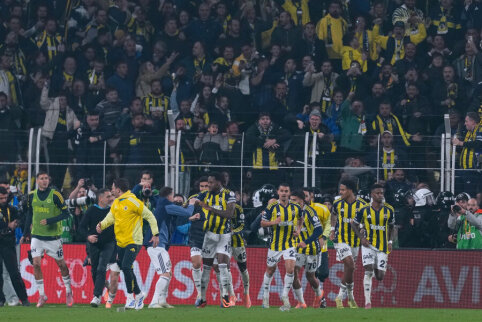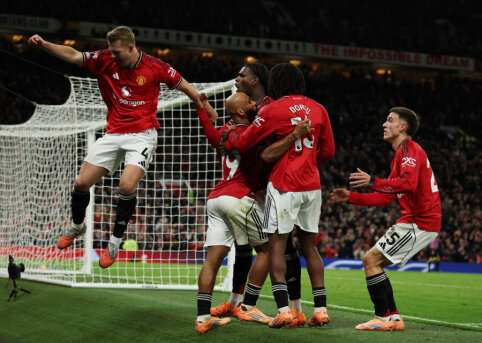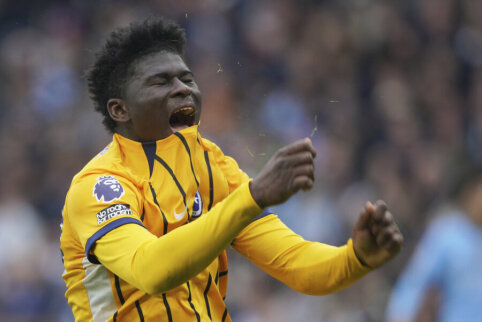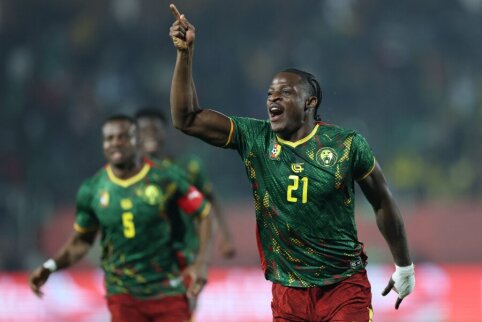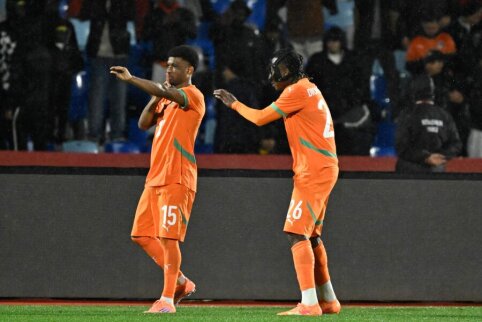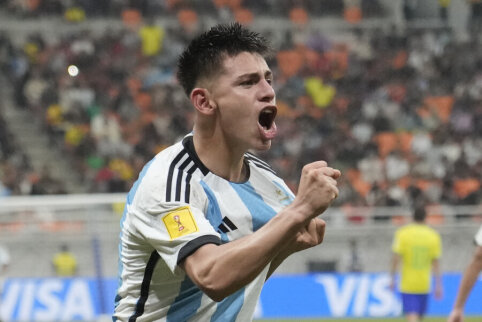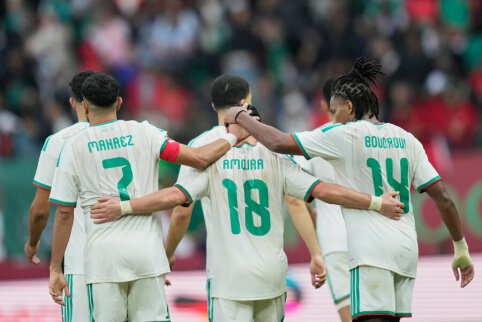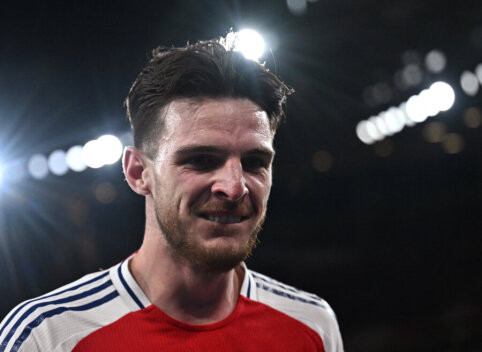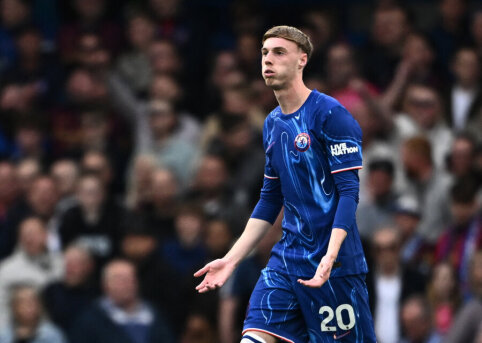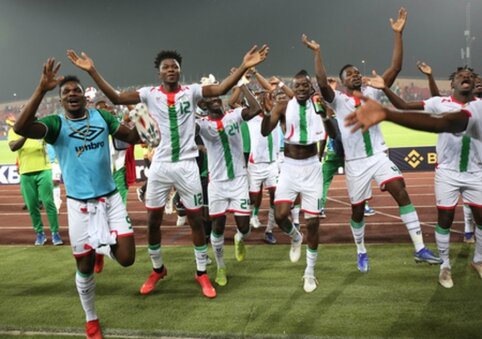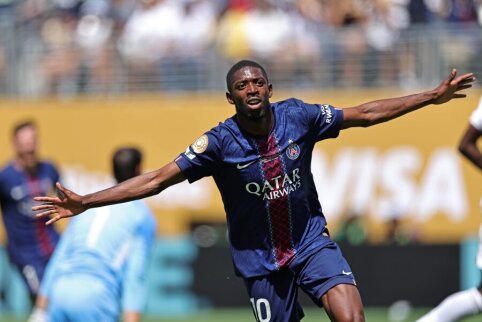 © EuroFootball.com
© EuroFootball.com
San Paulo, Brazil, May 4, 2006. Jose Mourinho and Russian magnate Boris Berezovsky hide behind the barricades in the locker room with two "Corinthians" club directors. Meanwhile, outside, the police are trying to control the fans who were incensed by the idea that "Chelsea" strategist could steal their idol Carlos Tevez from their team.
This happened because seven minutes before the "Libertadores" cup match between "Corinthians" and Buenos Aires' "River Plate", and with the visitors leading 3-1, the home fans couldn't handle it and tried to attack the VIP box. J. Mourinho, B. Berezovsky, and "Corinthians" owner, Iranian Kia Joorabchian, had to flee and hide in the locker room. After two hours of riots and tear gas, Mourinho and Berezovsky finally managed to leave the stadium.
The main "culprit" for the danger to the "Chelsea" strategist's life was the Argentine Carlos Tevez, also known as Carlito. He is an extraordinary player, even though we only saw glimpses of his talent during the World Cup, which inspired people to label him as the inevitable and standard "new Maradona."
Tevez's career highlights at just 23 years old are impressive. Leading "Corinthians" to the 2005 Brazilian champions title, he became the first foreigner to win the country's best championship player award. He was also the first player to be chosen as the best in South America three years in a row (2003, 2004, and 2005) since Chilean defender Elias Figueroa wowed journalists in the 1970s.
Just three years after his debut in 2001 with Buenos Aires' "Boca Juniors" team, he won every possible title at the club level, including the Argentine championship and the "Libertadores" cup. In 2004, he scored eight goals in six matches and became the top scorer at the Olympic soccer tournament, helping Argentina win the gold medal. That same year, "Corinthians" paid a record amount for him to Brazilian clubs - just over 9 million euros.
However, Tevez's fame is not just about titles or statistics. His impressive skills and will to win captivated the hearts of "Corinthians" fans, despite initial skepticism (even Brazil's president and "Corinthians" fan, Luiz Inacio Lula da Silva, said he didn't think Tevez would succeed).
Nevertheless, fans quickly fell in love at second sight. This sparked "Tevezmania." Fans started bringing Argentine and "Boca Juniors" flags to the stadiums, and Carlito's number 10 became the best-selling item of the season. The love was so blind that fans started imitating the player's personal style, wearing his clothes, and even copying his short hairstyle.
In 2006, his hair grew longer, as did his reputation and speculation about his future. His early exit from the World Cup somewhat dampened the enthusiasm. Despite a spectacular goal against Serbia and Montenegro and receiving the best player award in the match against the Netherlands, Tevez did not return home as one of the unquestionable World Cup stars.
Tevez's career is even more impressive considering he hails from the impoverished Fuerte Apache district of Buenos Aires. He learned to play soccer on makeshift pitches, where the sport was cultivated at its most basic level. Despite the fact that the lowest attempt to take the ball ended with a raised leg to the neck, Tevez readily accepted an offer to represent youth teams at the "Boca Juniors" club, which he had supported since childhood. There, he befriended team leader Juan Roman Riquelme.
However, just a few weeks after Tevez joined the main lineup, Riquelme was sold to "Barcelona" and passed the leadership role to his young colleague. The 18-year-old player immediately captivated the most passionate of fans. "Tevez does incredible things with the ball. The first time I saw him play at the "Bombonera" stadium, he reminded me of myself," said legendary Diego Maradona.
But as the "Golden Boy" Pibe d'Oro knows all too well, success on the field can lead to troubles off it. After incidents in nightclubs with photographers and too many appearances in Argentine celebrity magazines, Tevez wanted to leave. "My desire to leave "Boca" has nothing to do with soccer or money. It's personal. In Argentina, you are an idol, but they don't respect you or your family. You can't go for coffee or lunch with anyone without being followed. I felt the urge to leave," said the footballer.
When the MSI business group, supporting "Corinthians," offered 9 million euros, Tevez made an effort to leave "Boca Juniors" and publicly announced that he wanted to move to "Corinthians" immediately. Many speculated that he might not be the new Maradona, but the new Bernardo Gandulla. Gandulla was a decent Argentine player, but his only benefit after moving to "Vasco da Gama" was that he could throw in a ball from the sidelines. Even today, Brazilians call boys who pass the ball "gandulas." However, Tevez quickly started scoring goals, and the average attendance at "Corinthians" regional "Paulista" championship games jumped from 3784 (2004) to 16038 (2005) spectators.
"My simple lifestyle helped the fans identify with me. I'm a humble guy, I don't like limousines or champagne. I come from poverty. "Corinthians" fans are the same, so there was a quick connection between us," said Tevez. Indeed, fans were dazzled not only by his personality but also by his incredible game in the Brazilian championship.
As a forward who could play withdrawn closer to the defense line, he was everywhere, fighting for every ball. Although not tall (5 feet 6 inches), Tevez had unexpected physical strength, as many of his injured opponents found out. He had enough speed to give defenders a headache and enough tricks - frequently shifting one way and then heading the other, twisting or spinning when a hit was expected - to befuddle opponents. At the club level, he scored many goals - in "Corinthians'" victorious season, he scored 20 in 28 matches - although his 4 goals in 25 matches with the Argentine national team fall short of a comparison with Maradona.
But at "Corinthians," he became so popular that even the Brazilian president admitted his mistake: "A few months ago, it was unthinkable that "Corinthians" would acquire an Argentine and that he would do well. Tevez achieved not only that but also became the fans' favorite. He doesn't have the style of Maradona or Ronaldinho, but he plays from the heart. And that's what matters most."
However, "Tevezmania" did not overshadow the fact that the player had problems. He got into at least three fights with his teammates during training - the recurring opponent in the "ring" was former "Porto" star Carlos Alberto - and the club was fined for coming to a press conference wearing a "Manchester United" jacket. He complained about rough play by Brazilians and leniency by referees and even threatened to leave "Corinthians" once: "It seems that an Argentine can't triumph here." However, despite such words, he stayed.
In 2006, Tevez failed to win the "Libertadores" cup with "Corinthians." The team lost in the quarterfinals to "River Plate" - the same club Tevez loved to beat playing for "Boca." After the World Cup, he was given more time to rest, and this did not please either the players or the fans, as the team suffered defeat after defeat, sliding down the standings. He returned at the end of July, missing the match against city neighbor "Palmeiras," and failed to change anything - the team continued to lose.
Protests began in the stands. After scoring a goal in a tough home match against "Fortaleza," Tevez ran to the fans, putting a finger to his lips, instructing them to be silent. "How can we play in this situation? Every week, fans insult us during matches and training. It's difficult to demonstrate good gameplay when so many people disturb us. If they don't want me here, I can leave," he said.
His comments prompted a quick response from "Corinthians" ultras. As Tevez left the stadium with his wife Vanessa and daughter Florencia, angry fans surrounded his car, pounding on it and scaring the footballer's family. There were discussions internationally about his future after reconciling with the fans, and the player insisted: "I only know where I won't go. I won't go to "Palmeiras" or "River Plate." Eventually, Tevez unexpectedly moved to England with fellow countryman Javier Mascherano, representing London's "West Ham."
Both Argentine players had a very difficult first six months in Europe - aside from the language barrier and cultural differences, they joined a team that had a tragic start to the season. Unlike Mascherano, Tevez managed to secure a place in the team lineup, but Carlito also gave a relentless beating to the English media, as he did not hide his dissatisfaction when he was replaced in a match against "Sheffield United and immediately left the stadium.
The Argentine later apologized for his behavior, but as a punishment, his teammates decided he should donate his week's salary to charity and wear Brazilian jerseys at practice. However, Tevez refused: "I played in Brazil, and I respect this country and its people a lot, but I am Argentine, and I won't wear those shirts."
So, that's Carlos Tevez - an unpredictable and stubborn genius who could indeed become the new Maradona. Or the new Ortega..."
